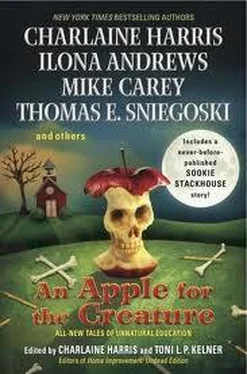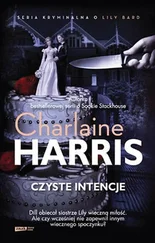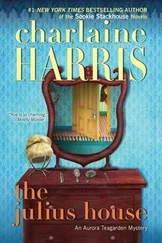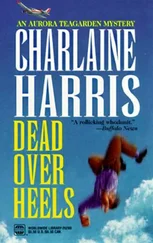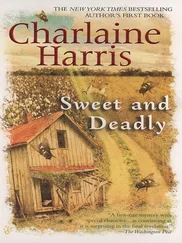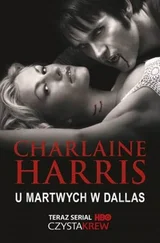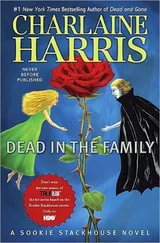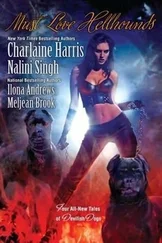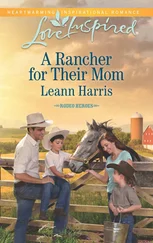I focused on the first problem. If x and then a squiggly sign I didn’t recognize to y, and then a + b in brackets, can we say that z is greater than x is? I blinked, stared at it again. It made no sense, even if I did know what that squiggly sign meant. Surely you couldn’t have so many unknowns in one problem. But the other kids seemed to be working away as if they weren’t fazed at all.
I moved on to the second question. Draw a graph to show that x/y might tend toward infinity in the circumstances z squared is less than 100. Again it made no sense to me. I had done well enough in algebra, surely, but I’d never encountered anything like this. The thought struck me that perhaps this was some kind of advance placement exam for math whizzes. Well, that wasn’t me, anyway. I’d never claimed to be a math whiz. My strengths had always been in the arts—reading, writing, history, languages, that was where I shone.
I turned over the algebra sheet and flipped ahead to see how much of the exam was math. Then I heaved a sigh of relief as I saw pages of writing ahead. World history. Good. I’d ace this part.
Discuss the treaty of Nebrachshazar in fourth-century BC and how it affected the development of cuneiform writing for the Babylonian people.
Are we justified in saying that there was peace in Persia in the year AD 731?
Which Chinese emperor did more to hinder the spread of the Taoist philosophy—Yin Fu Cha or Tse Wong Ho?
My heart was racing now. My throat was so dry I couldn’t swallow. I didn’t know any of this stuff. I’d never learned it. Our version of world history didn’t stretch much beyond the Spanish conquests in the New World and some more memorable kings of England.
Another subject. There must be another subject I could do. English. Right. There was an English paper.
Which little-known imitator of Shakespeare also wrote a play that took place in Windsor? In what ways was it similar to the Merry Wives? Discuss the passages that were borrowed from Shakespeare.
Give examples of seventeenth-century treatises with a Roundhead slant and contrast them to similar works favoring the Cavaliers.
Early-twentieth-century Bulgarian Romantic poets—what do they all have in common?
“This is stupid!” I almost said the words out loud, then swallowed them back at the last moment. There was not one question I could begin to answer. I was going to fail hopelessly. I would be put in remedial classes with all the dummies I so despised. I saw myself clearly—sitting in class while some idiot asked a dumb question and the rest of us had to wait while the teacher explained it all over again. Now I’d be in class with kids like that.
No, I wouldn’t. This had gone on long enough. I wasn’t going to stick around here one moment longer. I’d go to the office, call my parents and tell them to come and get me. I rose to my feet.
“Where are you going?” the bird-woman demanded.
“I’m not staying,” I said. “I don’t want to be here. This school isn’t right for me.”
“Not as smart as you thought you were, huh?” she said. “Fine. I’ll tell the principal that you refused to take the entrance exam. I’m sure she’ll be wanting to meet with you anyway. We don’t tolerate lack of cooperation here.”
“Ooh, she’ll get detention,” someone hissed.
“Who said that?” The bird-woman looked up sharply. “You, boy. Did I say no talking after the examination has started or not?”
“Yes, ma’am, you did.”
“Then take your things and go. Your chance to redeem yourself has just ended.”
“But I didn’t mean . . .” he stammered. “Just let me finish it. I almost had it finished this time.”
“Rules are rules. Go.” She pointed at the door.
“You can’t expect me . . . You can’t make me . . .” he blurted out. “It’s not fair, you know.” His face looked a picture of misery. No, more than misery, torment. But he dragged his feet all the way to the door and it clanged shut behind him.
“Anybody else have something they’d like to say?” She turned back to the room.
Heads went down and everyone scribbled frantically.
“I have something I want to say,” I said. “This isn’t the Dark Ages. You don’t get the best out of students by intimidating them.”
There was a collective gasp.
“Oh, we will enjoy having you here, Miss Weinstein,” the bird-woman said. “We will find you a delightful challenge.”
“Too bad, because I’m not staying.” I walked to the door and went to pull it open. It wouldn’t budge. That boy had opened it easily enough and there didn’t appear to be any kind of lock.
I turned back to the teacher and she was grinning now, her face lit up with amusement. “You don’t get it yet. You will. Now go back to work. I say when this exam is over.”
I stood by the door. “Would you please open this door. I want to go home.”
“Unfortunately we don’t always get what we want, do we?” she said, going back to the papers on her desk. “We get what we deserve.”
“I don’t deserve to be treated like this. None of us do.”
She glanced up briefly. “Have you never treated others as if they were beneath you? Have you never gloried in your power over them?”
“No, never.” I blurted out the words but an image flashed across my mind—and I heard someone say, “Texas Chemicals versus Rodriguez.” What on earth did that mean? And yet it seemed vaguely familiar, something I had heard or read about before.
The bird-woman went back to her work and I went back to my desk. I turned over the next page hopelessly. Then suddenly I saw questions that I could do. U.S. Government and Constitution. I looked down the page.
What preceded the constitution, and why was it unworkable?
Yes, I could do this. I started to write furiously.
Which amendment . . . Yes, I knew that. I’d obviously just found the few stupid pages before and now I was back on track. They’d see that I knew my stuff—after all, if anyone knew about Congress, it should be me, right? I stopped writing and frowned at this thought. Why should I know about Congress?
“Ten more minutes,” the bird-woman said.
I went back to writing and then there was a snapping sound and the finely sharpened tip of my pencil broke off. I stared at it in dismay. I tried to write with the stub but it was impossible.
A bell rang, jangling loudly above our heads.
“Leave your papers on the desk and file out in silence,” the bird-woman said.
Reluctantly I left my unfinished government paper and joined the line. I saw a couple of kids take a look at me and then snigger. I joined them as they walked back down the six hundred hallway to the stairwell and fell into step beside a studious-looking girl. She was wearing glasses and was dressed in a dorky manner, like me, so at least I figured she’d be someone I could talk to.
“Hi,” I said. “What was that exam all about? I mean, did you know that crazy stuff?”
“Oh, yes,” she said. “I read the study sheets ahead of time. It was a cinch.” She went to walk on ahead of me.
“Wait,” I said. “I’m new here and I don’t like it.”
“Don’t like it?” She looked as if she was about to smile. “That’s funny. Do you think anyone likes it?”
“Then why put up with it? There are plenty of better high schools around. Normally, I go to Oakmont. It’s great. Very modern. Very academic.”
“I don’t know of any Oakmont.”
“Near the civic center and the freeway.”
“I don’t know what you’re talking about. This is the high school.”
Читать дальше
